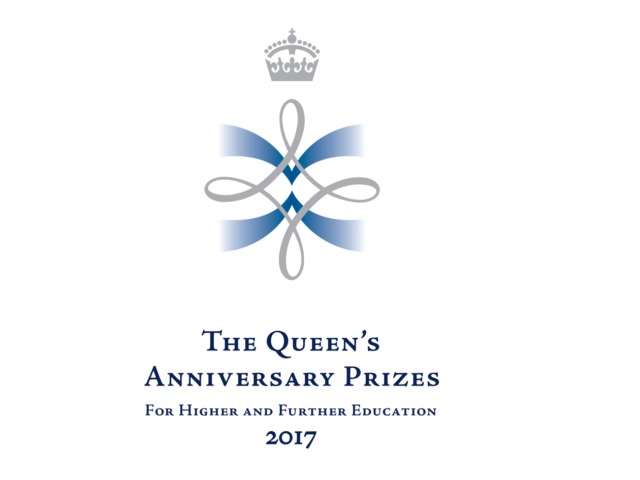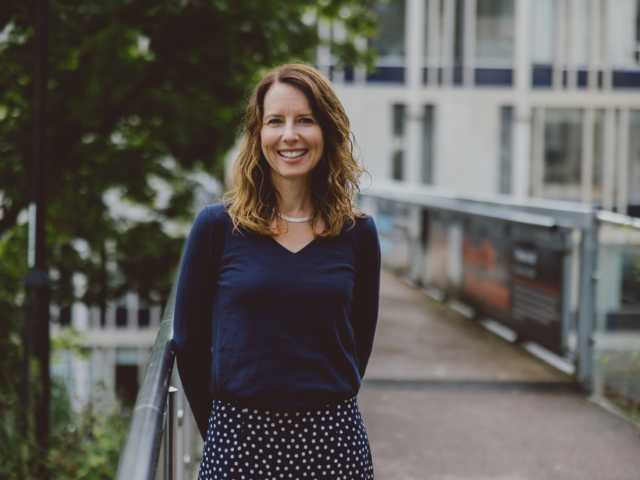The prestigious Queen’s Anniversary Prize for Higher and Further Education has been awarded to ISER for its ““authoritative social and economic research to inform government policies and improve people’s lives”.
The announcement was made by the Royal Anniversary Trust at a reception at St James’s Palace in London today (Thursday 30 November). The Prize is the highest form of national recognition for the work of a UK university and will be officially bestowed on the University at Buckingham Palace in early 2018 by Their Royal Highnesses The Prince of Wales and The Duchess of Cornwall.
The Prizes are part of the honours system and are awarded every two years by The Queen on the Prime Minister’s advice. UK universities and colleges were invited in October 2016 to submit entries on any aspect of their work for assessment against the scheme’s criteria of excellence, innovation and practical benefit, to the institution itself and UK education, and to the UK economy and society and for public benefit in general.
ISER, with significant funding support from the Economic and Social Research Council (ESRC), has built a global reputation since being established in 1989 and the official commendation states the Prize is for University of Essex Vice-Chancellor Professor Anthony Forster said: “Winning our second Queen’s Anniversary Prize is a huge honour for the whole of the University of Essex. This highlights the world-renowned social science research taking place here.
“ISER is a flagship research institute at Essex and its work exemplifies our mission to undertake research which has a real impact on the world. ISER’s track record of producing exceptional postgraduate researchers is exemplary.
“This prize recognises how ISER researchers are delivering influential and authoritative research which has an impact at a regional, national and international level. They push the boundaries, stretch across disciplines and innovate to increase the accuracy and relevance of their research.
“Thanks to this ISER has become the touchstone for policymakers and those seeking to influence public policy in the UK and across the globe.”
ISER Director Professor Emily Grundy said: “We are so proud to receive the Queen’s Anniversary Prize which recognises the incredible work of our research teams to deliver high-quality research which helps us understand how people’s lives are changing over time. For nearly three decades ISER has been at the forefront of social science research and has been a model for other institutes around the world. This Prize will spur us on to continue to extend the scope and impact of our quantitative and longitudinal research. We are very grateful for the continuing support of our partners and funders, in particular the Economic and Social Research Council and the University of Essex, alongside the government departments, charitable trusts, third and private sector organisations who work with us and support our research.”
Tony McEnery, ESRC Interim Chief Executive, said: “ISER is synonymous with the authoritative evidence and insights which are so vital to developing successful public policy. We’ve been supporting ISER’s ground-breaking and innovative work for 28 years and we’re delighted to see this Queen’s Anniversary Prize awarded for the rich insights and analysis delivered through flagship ESRC-funded projects such as MiSoC, the British Household Panel Survey (BHPS) and its successor Understanding Society. Through this work ISER has set the international standard for major longitudinal research which allows us to really understand how our societies are changing.”
ISER’s expertise in quantitative social science makes an important contribution to the research and educational environment for doctoral students and future researchers. This helped Essex achieve Q-Step affiliate status in 2015 which strengthens quantitative methods training at all levels while Understanding Society data is used in the research-led education at Essex.
ISER also contributes to the South East Network for Social Sciences (SeNSS) which unites ten regional universities and is part of the ESRC’s prestigious Doctoral Training Partnership network.
Survey methodology



